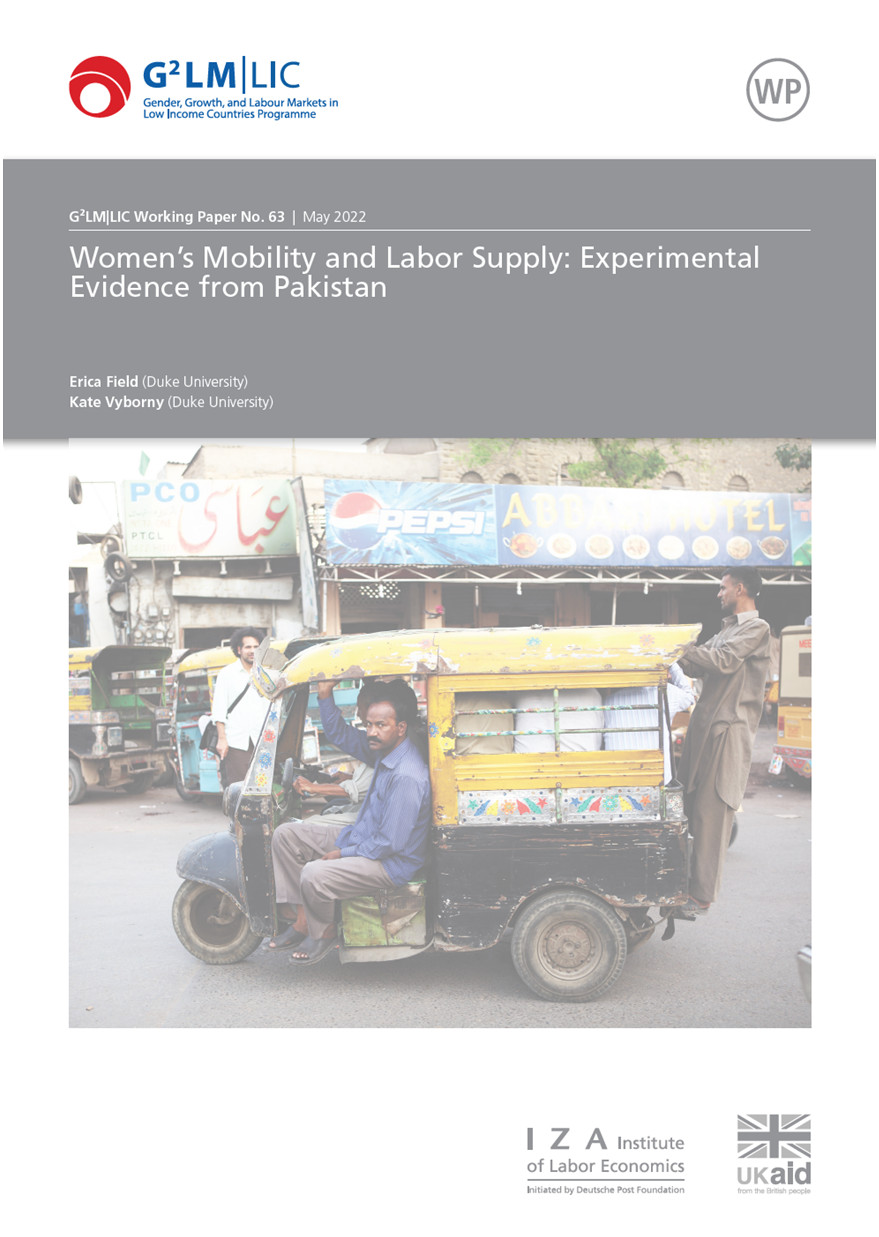In cities with conservative norms or high crime, female workers may face greater restrictions on their physical mobility. This limits women’s labor market opportunities and the pool of workers that firms can attract. In this study, we experimentally vary access to a transport service in Lahore, Pakistan, to quantify the overall impact of transport to work on men, women, and the differential impact of transport exclusively for women. We show that reducing physical mobility constraints has a large impact on job searching for women, including women who are not searching at baseline. Women’s response is driven by a women-only transport treatment arm, suggesting that safety and social acceptability, rather than simply cost, are key constraints.
Please find the latest version of the Working Paper here: https://www.iza.org/publications/dp/17883/womens-mobility-and-labor-supply-experimental-evidence-from-pakista
